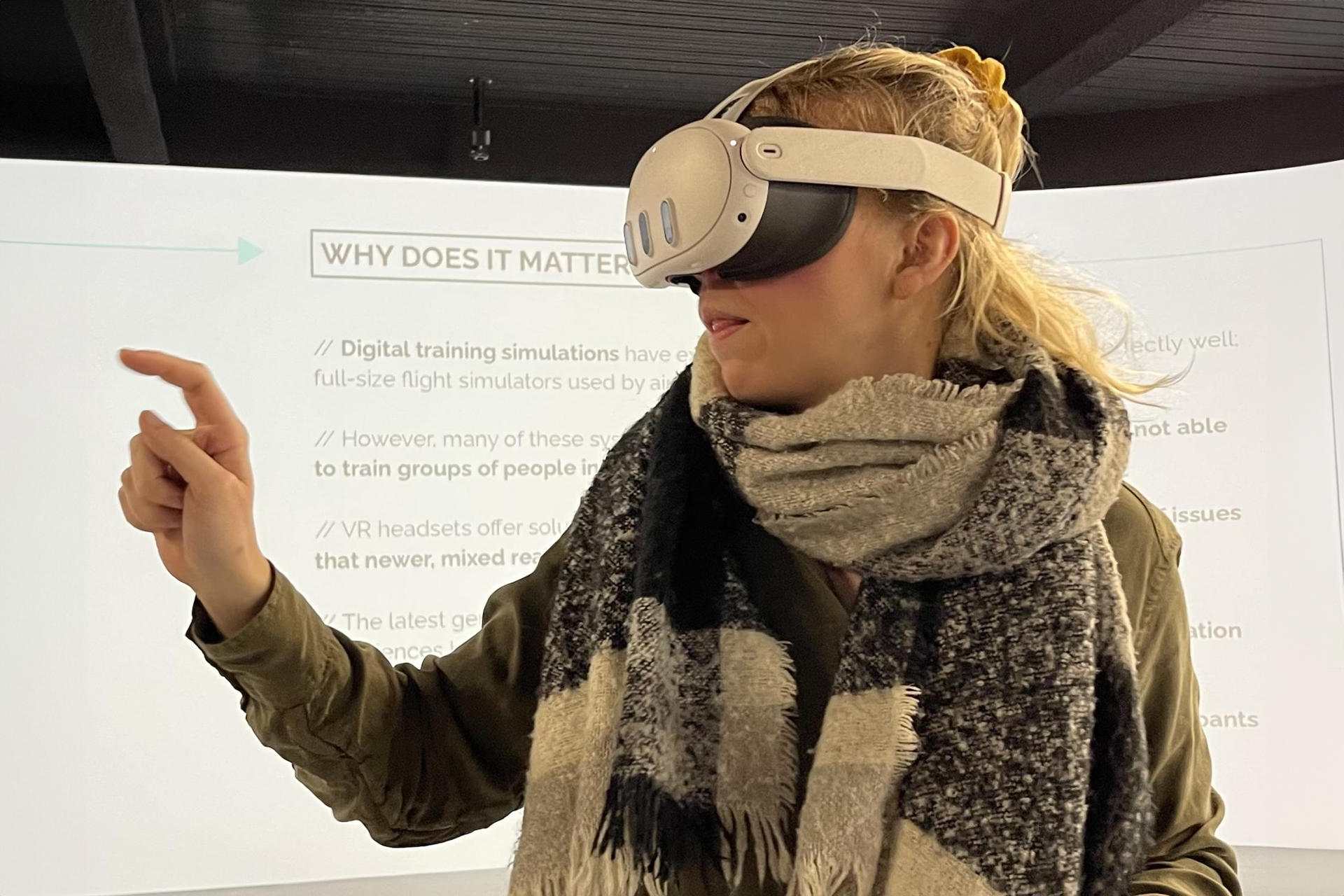
Future medicine and vaccine makers will be able to develop their skills using virtual reality thanks to a new national Centre of Excellence announced today.
The RESILIENCE Centre of Excellence for UK Medicines Manufacturing Skills will deliver training and outreach materials and programmes that addresses skills demands in the life sciences sector. The Centre will be run by an academic consortium of UK universities and will receive £4.5m of funding from Innovate UK and the Office for Life Sciences, and will work with healthcare and pharmaceutical organisations to provide a single-entry point for training and career input including a pipeline of continuing professional development courses.
Students across the UK will benefit from access to training that draws on the best and most innovative teaching being developed by the RESILIENCE Centre, including the use of virtual reality and mixed reality situations that give students ‘near to real life’ experiences of lab environments for medicine manufacturing in addition to more traditional teaching approaches.
Innovative training technologies, such as VR and AI will give trainees access to virtual replicas of industry facilities, enabling them to become ‘workplace ready’.
Professor Ivan Wall, Co-Director of RESILIENCE
Ivan Wall, Professor of Regenerative Medicine at the University of Birmingham and Co-Director of RESILIENCE said:
“The UK is a global leader in life sciences research, but there is a critical and growing skills shortage across the medicines manufacturing industry. The RESILIENCE Centre of Excellence will bridge this skills gap, by developing a pipeline of talent and providing training for industry to ensure current and future employees possess the right skills for a rapidly evolving sector.
“RESILIENCE will work with industry collaborators and government to build training and outreach programmes that enable workforce growth to boost the UK’s medicines manufacturing capability. Innovative training technologies, such as VR and AI will give trainees access to virtual replicas of industry facilities, enabling them to become ‘workplace ready’ without the safety risks or environmental impacts of physical equipment. This approach will allow us to standardise and scale out training provision across our core partners, ensuring consistency in skills development across the UK.”
Professor Gary Lye, Director of the University College London Manufacturing Future Lab said:
“The companies involved in the discovery and manufacture of new medicines make a major contribution to the UK economy. As a university, it is important that we support this vital sector through new research and through education of the skilled individuals who will enable the sector to grow.”
AI, sustainability and big data
Life sciences businesses will be key partners in the delivery of the RESILIENCE centre to ensure that training needs are adapted to suit pressing priorities.
Current needs that the Centre will address include training provision for digital skills, data analytics, and AI, as well as embedding environmental sustainability into manufacturing processes. With the use of virtual reality and mixed reality delivery modes, manufacturing staff can undertake a significant amount of training in VR rather than the physical environment, reducing the production of manufacturing waste that has to be incinerated, as well as speeding up the training process.
Addressing a Maths Summit at the Science Museum in London today, Science and Technology Secretary, Michelle Donelan, said:
“Building on our reforms to the skills system will require work from each and every one of us – universities, schools, and businesses. By doubling down on our investments in skills and backing British business, we can lay the foundations for an economy fit for the future – an economy that creates jobs and improves lives for communities up and down the country.
“That is how we make our science and tech superpower mission a success.”
The RESILIENCE Centre of Excellence will be led by an academic consortium led by the University of Birmingham and working with University College London, Teesside University, and Heriot-Watt University and Britest LTD, to deliver an Innovate UK and Office for Life Sciences-funded programme.

150 schools and colleges get free resources
School children will also benefit from the newly established Centre through free resources to inspire a future generation of medicine makers.
The RESILIENCE Centre will provide teaching and outreach materials to 150 schools, colleges, and universities for free, enabling them to become affiliate members of the RESILIENCE network, as well as nurture the talent pipeline for the medicines manufacturing sector through education, mentoring and outreach.
Training courses will also be developed to support the existing workforce in the UK medicines manufacturing community, across industry and NHS, to ensure that the UK remains at the forefront of medicines development and is ready to combat future pandemics.
Professor Vikki Rand, Director of Teesside University’s National Horizons Centre, a national centre of excellence for bioscience and healthcare, said:
“At the National Horizons Centre we have a strong track record for working with partners in the bioscience sector developing innovative training for the workforce.
“By combining hands-on training on the latest equipment with digital technology, including VR and AR, we deliver real impact for the companies, by saving quality time and resources and giving them the ability to train their employees at scale”.
“We are delighted to be part of this excellent national project that is ensuring that the UK retains its leading place in biomanufacturing. We are looking forward to delivering a real step-change in driving the talent pipeline to manufacture medicines of tomorrow.”
Professor Nik Willoughby at Heriot-Watt University said:
“We are thrilled to participate in RESILIENCE, contributing significantly to the education of the upcoming generation with essential skills for the development and manufacture of future medicines. Our emerging Global Research Institute in Health and Care Technologies exemplifies our commitment to advancing healthcare through innovative research-led teaching and entrepreneurial collaboration.”
Dr Kirk Malone, Commercial Director of Britest Limited, said:
“As an SME-sized company that supports organisations to sustainably grow through better process understanding, we appreciate the importance of skills training and development. RESILIENCE will instil multidisciplinary thinking into future skilled workers to enable more sustainable medicines manufacturing.”
